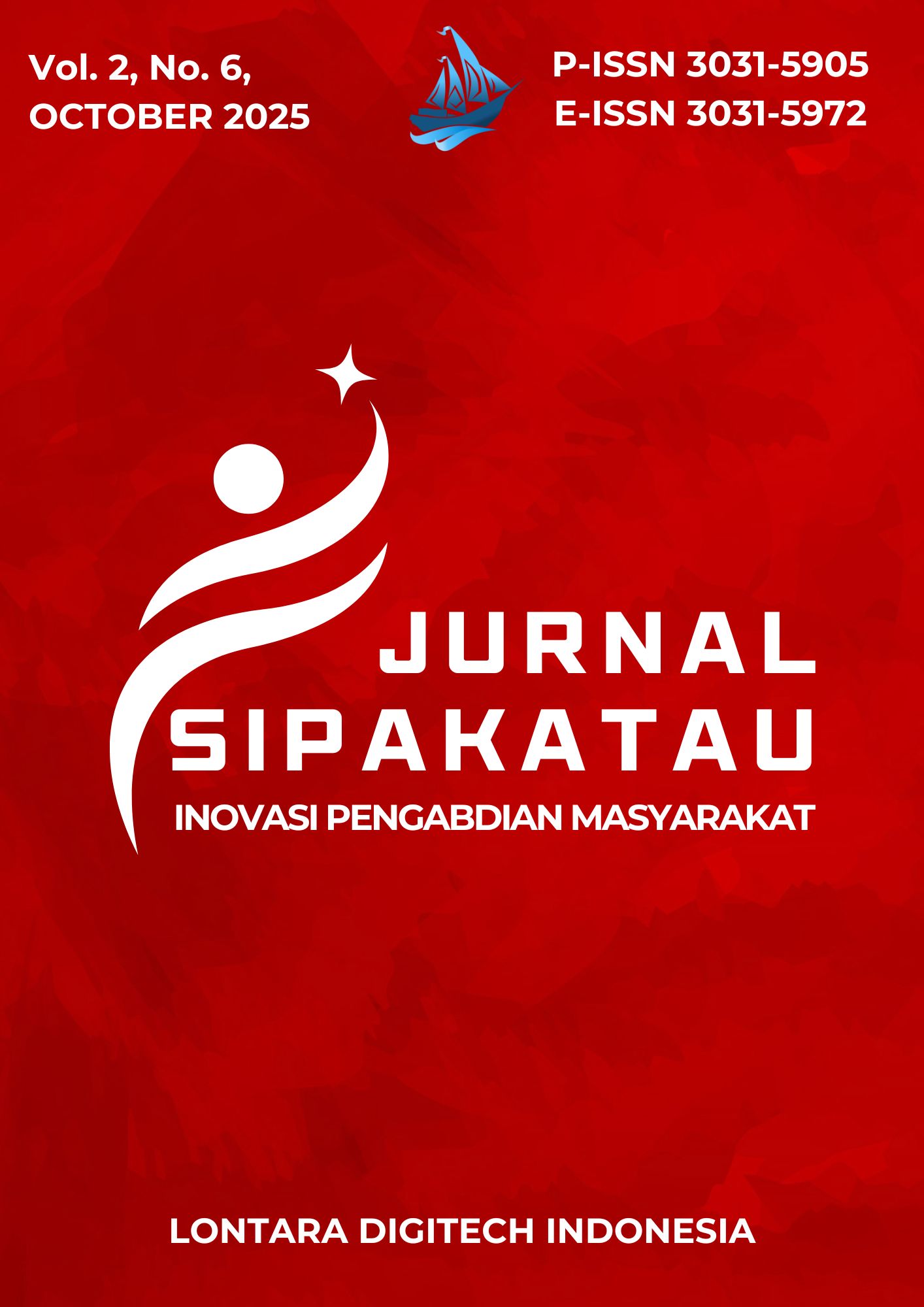Application of Acceptance-Based Behavioral Therapy (ABBT) in Trauma Recovery for Victims of Sexual Abuse
DOI:
https://doi.org/10.61220/Keywords:
acceptance-based behavioral therapy, trauma recovery, sexual abuse, mental healthAbstract
Cases of sexual abuse against women and children in Maros Regency remain high and have a serious impact on the mental health of victims, such as anxiety, depression, and post-traumatic stress disorder (PTSD). The Office of Women's Empowerment and Child Protection (DP3A) has so far only focused on data collection, so it does not yet have a sustainable trauma recovery intervention method. This community service program implements Acceptance-Based Behavioral Therapy (ABBT) as an alternative solution. ABBT emphasizes acceptance, mindfulness training, and behavioral activation to improve the psychological flexibility and well-being of victims. The program implementation includes initial assessment using the Depression Anxiety Stress Scale-21 (DASS-21), training for DP3A facilitators, victim assistance, and the use of the EmbraceU digital application as a supporting medium. The results of the activity show an increase in the capacity of facilitators in understanding and applying ABBT, as well as an improvement in the psychological condition of victims, marked by a decrease in symptoms of stress, anxiety, and depression. Victims also began to show courage in socializing and motivation to return to school. This program strengthens the institutional capacity of DP3A in trauma recovery services and provides an effective and sustainable intervention model for the protection of women and children.
References
Bourassa, K. J., Allen, J. J., Berman, M. G., & Sbarra, D. A. (2024). Posttraumatic stress disorder symptoms are associated with accelerated biological aging: Implications for chronic disease, disability, and premature mortality. Psychological Medicine, 54(2), 327–336. https://doi.org/10.1017/S0033291722000535
Coe, C., Batten, S. V., & Meyer, E. C. (2020). Acceptance-based behavioral therapy for posttraumatic stress disorder: A review of current evidence and future directions. Journal of Contextual Behavioral Science, 15, 1–10. https://doi.org/10.1016/j.jcbs.2019.11.007
Kaczkurkin, A. N., & Foa, E. B. (2022). Cognitive-behavioral therapy for anxiety and related disorders: Current status and future directions. Annual Review of Clinical Psychology, 18(1), 427–454. https://doi.org/10.1146/annurev-clinpsy-072720-020002
Moitra, E., Herbert, J. D., Forman, E. M., & Funderburk, J. S. (2023). Acceptance-based behavioral therapy for trauma-related symptoms: A randomized controlled trial. Journal of Anxiety Disorders, 95, 102639. https://doi.org/10.1016/j.janxdis.2023.102639
Rojas-Torres, L., Ruiz, F. J., & Suárez-Falcón, J. C. (2021). Effects of mindfulness training on stress, emotion regulation, and well-being: A meta-analysis. Mindfulness, 12(3), 567–581. https://doi.org/10.1007/s12671-020-01509-2
Ron-Grajales, M., Peña-Sánchez, J. N., & León, C. A. (2021). Behavioral activation for post-traumatic stress disorder: Systematic review and future directions. Psychological Trauma: Theory, Research, Practice, and Policy, 13(5), 567–575. https://doi.org/10.1037/tra0001011
Published
Issue
Section
License
Copyright (c) 2025 Alfiah Tri Aulia, Mutiara Dwi Wahyuni, Ummu Asy-syifa Amalia, Adelia Nururrahmah, Hezron Alhim Dos Santos (Author)

This work is licensed under a Creative Commons Attribution-ShareAlike 4.0 International License.
















 Email: sipakatau@lontaradigitech.com
Email: sipakatau@lontaradigitech.com
